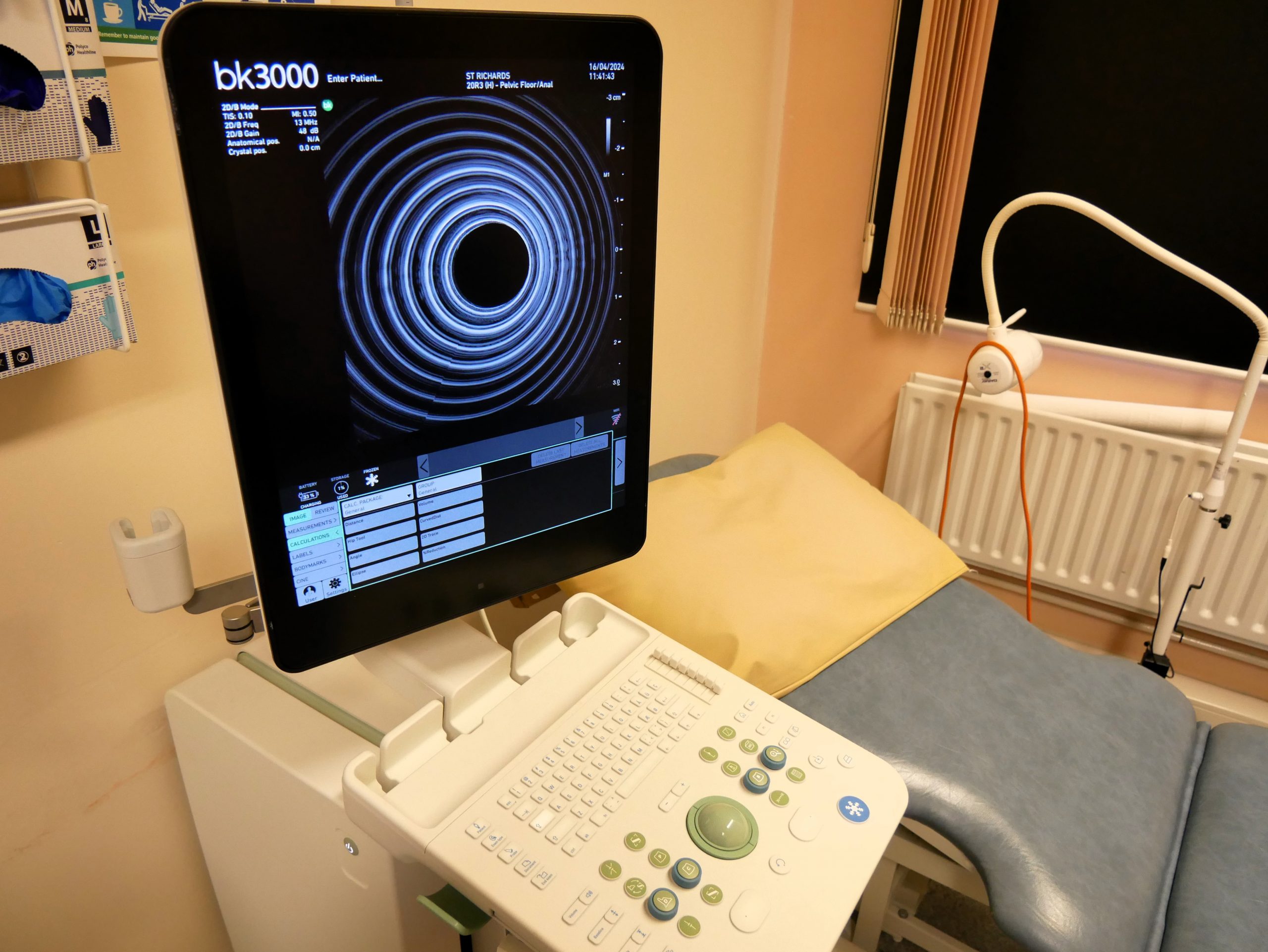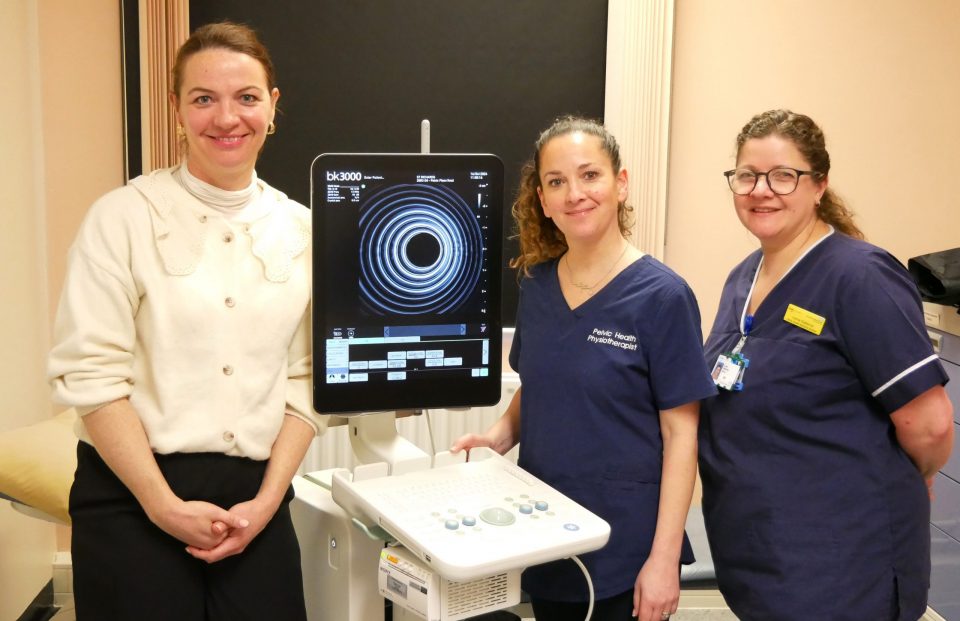Every person’s experience with birth is different, and for some it can be painful. My University Hospitals Sussex is committed to supporting the Trust to provide excellent care, every time, for every mother and baby across their maternity wards.
And so, in 2023, we funded the Endoanal Ultrasound Scanner to benefit patients at both Worthing and St Richard’s Hospital.
Many women experience perianal tears during childbirth; ranging from first degree, which usually heal naturally, to third and fourth degree, which cause Obstetric Anal Sphincter Injury (OASI). Unfortunately, as common as these injuries are, they can greatly affect a person’s quality of life – physically, psychologically and financially.
Consequences of each case can be difficult to determine accurately without a scanner; women can experience various symptoms such as perineal pain and incontinence, as well as difficulties in subsequent births.
Previously, any patients requiring an endoanal ultrasound scan had to travel to University Hospital Southampton or Croydon University Hospital, but with the rate of OASI growing (perhaps due to increased recognition), the necessity for the Trust’s own machine was fast becoming apparent.
The Endoanal Ultrasound Scanner, which is mobile for use across both Worthing and St Richard’s Hospitals, is already making a difference in assisting the multidisciplinary assessment of patients in the new Perineal Tears Clinic. Through suitable scanning, the team can reduce risks and enhance experience. Alongside the patient they can determine best birthing options, ensure counselling to support their decisions is provided, and prevent problems in later life with focused physiotherapy.

Georgina Fraser, Consultant Gynaecologist, shared her appreciation for the charity’s funding of the scanner: “For women who have sustained birth injuries, a multidisciplinary team of a midwife, physiotherapist and consultant is best practice. But that wouldn’t be possible without this new piece of kit. We can now provide an ‘ongoing package’ for our patients.“


